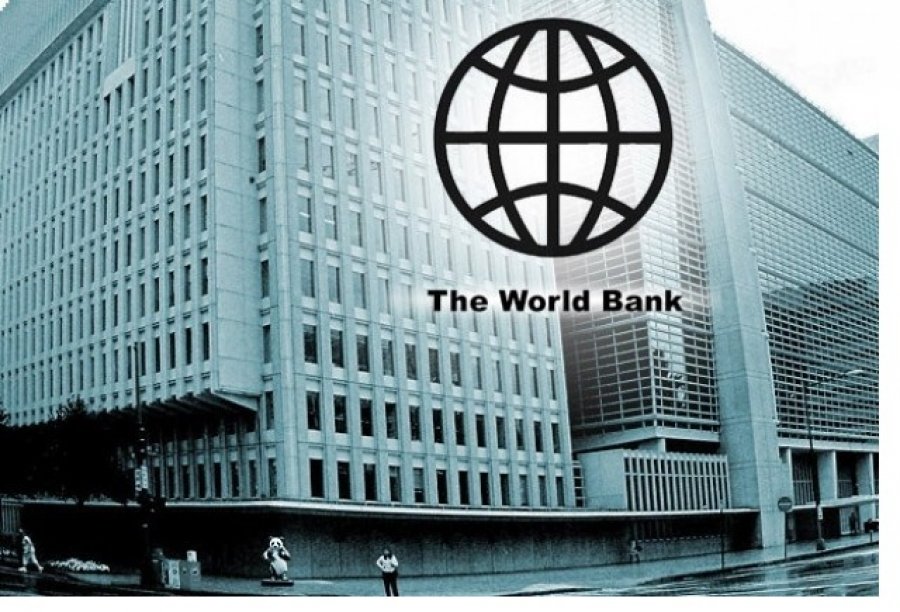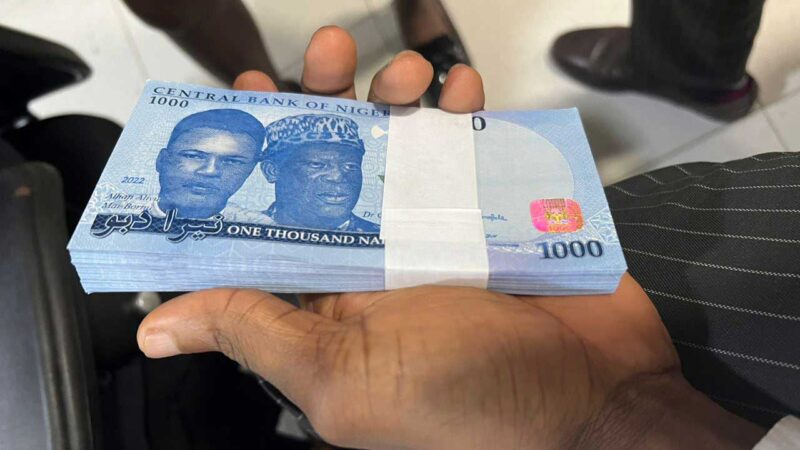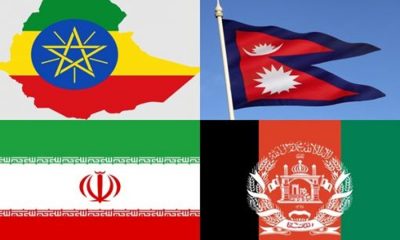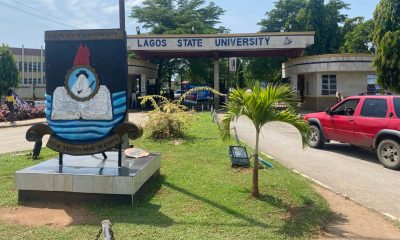News
Nigeria seeks World Bank’s approval to restructure $650m health loan

Nigeria seeks World Bank’s approval to restructure $650m health loan
The Federal Republic of Nigeria is seeking the World Bank’s approval to restructure a $650 million loan allocated to the Nigeria Improved Child Survival Program for Human Capital (ICSPHC).
This is according to the “Restructuring Paper” on the program, which was seen by Nairametrics.
The program is a critical component of Nigeria’s broader health sector reform efforts, designed to reduce the under-five mortality rate from 132 per 1,000 births in 2018 to 79 per 1,000 by 2030.
According to the restructuring paper, this request follows the mid-term review of the project, which highlighted the need for strategic adjustments to better align with the government’s evolving approach to health sector reform, particularly in child and maternal health.
The document read: “This Restructuring Paper seeks the approval of the Country Director to carry out a Level-two restructuring of the Immunization Plus and Malaria Progress by Accelerating Coverage and Transforming Services Project (IMPACT P167156), the first phase of the Nigeria Improved Child Survival Program for Human Capital Multiphase Programmatic Approach (MPA).
“This Level 2 restructuring proposes to (a) revise the components and costs; (b) reallocate funds across disbursement categories; and (c) modify the Results Framework. This is the second restructuring of the IMPACT Project as it was restructured once in July 2021 and revised Component 2 to include financing the construction of the Lagos vaccine Hub.”
READ ALSO:
- 35 die in two Pakistani bus accidents
- Vietnam-bound businessman excretes 68 wraps of cocaine at Lagos airport
- UPDATED: Police, Shi’ites clash in Abuja, two officers killed, many hospitalised
It added: “The proposed restructuring is based on the outcome of the October 2023 Mid-Term Review (MTR) and agreements reached as detailed in a letter of request dated March 26, 2024 (Reference No. LF466: FMOFIER-240328) and extensive discussions between the Government and the World Bank regarding the shift in the Government’s approach in the health sector.”
Proposed Changes
Although the project has been described as moderately satisfactory, the proposed restructuring involves several key changes to the project’s design and implementation strategy.
The Nigerian government intends to reallocate funds across disbursement categories, freeing up resources to expand the Basic Health Care Provision Fund (BHCPF) to additional states. This expansion will enhance access to essential health services, particularly in regions lagging in key health indicators. Also, the government plans to revise the project’s results framework, incorporating alternative data sources such as the Multiple Indicator Cluster Surveys (MICS) to address gaps in monitoring and evaluation.
The restructuring will also involve the deletion of specific activities, such as the centralized procurement of Long-Lasting Insecticidal Nets (LLINs) and other malaria commodities. Instead, participating states will manage their own procurement processes, ensuring timely delivery of malaria prevention tools. This shift is expected to improve the efficiency of malaria control efforts and support the broader goal of reducing under-five mortality.
Moreover, the restructuring includes the addition of a new sub-component focused on improving secondary health facilities and training institutions for healthcare workers.
Nigeria seeks World Bank’s approval to restructure $650m health loan
News
Currency in circulation now N4.8tn – CBN report

Currency in circulation now N4.8tn – CBN report
Currency in circulation has reached an all-time high of N4.8 trillion as of November 2024, recording over seven per cent increase from the previous month.
Also, currency outside banks grew significantly in the same month hitting an all-time high of N4.6 trillion from the N4.2 trillion in the month of October.
These figures were contained in the money and credit supply data from the Central Bank of Nigeria (CBN).
The currency in circulation is the amount of cash–in the form of paper notes or coins–within a country that is physically used to conduct transactions between consumers and businesses.
It represents the money that has been issued by the country’s monetary authority, minus cash that has been removed from the system.
Similarly, currency outside a bank refers to cash held by individuals, businesses and other entities that is not stored in banks.
The currency outside the bank represents about 96 per cent of the currency in circulation.
Nigerians have in recent times been facing acute cash shortage with banks limiting daily withdrawal at Automated Teller Machines (ATMs) to N20,000 irrespective of the number of accounts held by an account owner.
READ ALSO:
- Cross River man kills mother, dumps body inside well
- El-Rufai mocks Reno Omokri with throwback protest photos against Tinubu
- Warri refinery: Marketers hopeful of further petrol price drop
According to the latest data, the currency in circulation grew by seven per cent to reach 4,878,125.22 from 4,549,217.51 in October.
Currency in circulation has grown steadily in the outgoing year 2024 with over one trillion naira added to cash in circulation after starting the year with N3.65 trillion in January.
In February, the currency in circulation slightly increased to N3.69 trillion representing an increase of N43 billion or 1.18 per cent from the January figure.
March also saw an appreciable increase to N3.87 trillion while it further increased to N3.92 trillion in the following month of April.
The growth trajectory continued in May with the currency in circulation increasing slightly to N3.97 trillion, an increase of N42 billion or 1.07 per cent while it reached an all-time high of 4.04 trillion, an increase of 2.11 per cent from May.
The July figure also rose marginally with the currency in circulation settling for N4.05 trillion before growing to N4.14 trillion in August and N4.43 trillion in September and N4.5 trillion in October.
In the same vein, currency outside banks grew from N4.2 trillion in October to N4.6 trillion in November, showing increasing preference for other means of storing outside bank deposits.
Economist, Dr. Paul Alaje attributed the development to the expanding money supply, adding, “Money supply is expanding but this may not necessarily be in cash. As it is expanding, it will necessarily induce inflation. But you can’t blame the people. People must look for money. How much was bottled water last year, how much is it today? All of this will induce inflation. If you now ask, what is the cause of inflation? Is it money supply itself or a devaluation policy? It is a devaluation policy. Money supply is an offshoot. So the Central Bank is raising interest rates to actually reduce money supply but the more they try the more money supply expands.”
He stated that the floatation policy of the CBN has created inflation, adding, “It is like chasing one’s tail and I don’t know if you are going to catch it.”
Currency in circulation now N4.8tn – CBN report
News
Tinubu not telling Nigerians the truth, says Sule Lamido

Tinubu not telling Nigerians the truth, says Sule Lamido
President Bola Tinubu has been accused of not being forthright about the true state of Nigeria under his administration.
Former Jigawa State Governor and senior Peoples Democratic Party (PDP) member, Sule Lamido, made the accusation while speaking on the BBC Hausa programme Gane Mini Hanya.
Lamido criticized both Tinubu and former President Muhammadu Buhari for what he described as a lack of transparency in governance.
“Buhari’s and Tinubu’s governments are not being transparent with Nigerians unlike during the time when PDP was in power where everything was transparent and open to all Nigerians,” Lamido said.
READ ALSO:
- Odili: Fubara prevented Wike from turning Rivers to private estate
- Putin apologises over Azerbaijan plane crash reportedly shot down
- 256 terrorists, two logistics suppliers arrested in one week – DHQ
He accused the two administrations of relying on propaganda rather than providing citizens with accurate information.
Lamido also expressed concerns over President Tinubu’s recent loan requests, questioning the logic behind them. “If Nigerians are being told the truth then there is nothing wrong with that, but how would you budget N30tn, generate N50tn and then request loan when you have a surplus of N20tn,” he said, referencing last year’s budget.
He described the situation as “reckless” and “selfish,” adding, “This recklessness and clear-cut selfishness is not done anywhere in the world, but yet you find (some) Nigerians supporting it. Visit social media and see how APC is being criticised, being referred to as calamity, yet you find some protecting it.”
Tinubu not telling Nigerians the truth, says Sule Lamido
News
Nigeria Customs Service begins 2025 recruitment [How to apply]

Nigeria Customs Service begins 2025 recruitment [How to apply]
The Nigeria Customs Service (NCS) has announced the commencement of its recruitment exercise, assuring Nigerians that the process is entirely free and fair.
The agency has cautioned the public to be vigilant against scammers who may attempt to exploit unsuspecting applicants during the recruitment period.
Applications are invited for positions in the Superintendent, Inspector, and Customs Assistant cadres as part of the Service’s plan to recruit 3,927 officers in 2025.
This initiative is aimed at enhancing trade facilitation and supporting Nigeria’s economic recovery efforts.
“Our recruitment is entirely free and fair. At no stage do we charge fees. Anyone requesting payment is a scammer,” the agency emphasized, urging applicants to be wary of fraudulent schemes.
READ ALSO:
- Dangote, Tinubu, Lookman, Badenoch named among 100 most influential Africans in 2024
- Heavy security in Ilesa as ex-Osun deputy gov emerges new Owa-Obokun
- Hacker has stolen N180m from my NGO account – VeryDarkMan cries out
The NCS outlined eligibility criteria, stating that applicants must be Nigerian citizens by birth, possess a valid National Identification Number (NIN), and have no criminal record or ongoing investigations.
Academic qualifications for the three cadres are as follows:
Superintendent Cadre: A university degree or Higher National Diploma (HND) along with an NYSC discharge or exemption certificate.
Inspectorate Cadre: A National Diploma (ND) or Nigeria Certificate in Education (NCE) from an accredited institution.
Customs Assistant Cadre: At least an O’Level certificate (WAEC or NECO).
In addition to these qualifications, the NCS stressed that all applicants must be physically and mentally fit, providing evidence of medical fitness from a recognized government hospital.
Nigeria Customs Service begins 2025 recruitment [How to apply]
-

 Sports3 days ago
Sports3 days agoAnthony Joshua prostrates before Governor Abiodun during Ogun visit
-

 metro2 days ago
metro2 days agoWanted terrorist commander, Bello Turji, a dead man walking – DHQ
-

 metro2 days ago
metro2 days agoNigeria on life support when Tinubu took office – Akpabio
-

 metro2 days ago
metro2 days agoFour countries that won’t celebrate New Year
-

 metro3 days ago
metro3 days agoLASU don accuses Ikeja Electric of extortion, petitions FCCPC
-

 metro11 hours ago
metro11 hours ago‘Deepen Shariah knowledge to curb misinformation’
-

 metro3 days ago
metro3 days agoN180m not missing from my account, it was all a plan – Verydarkman
-

 metro3 days ago
metro3 days agoTinubu reveals Buhari’s role in commencement of Warri refinery operation









